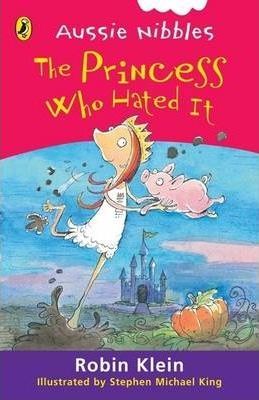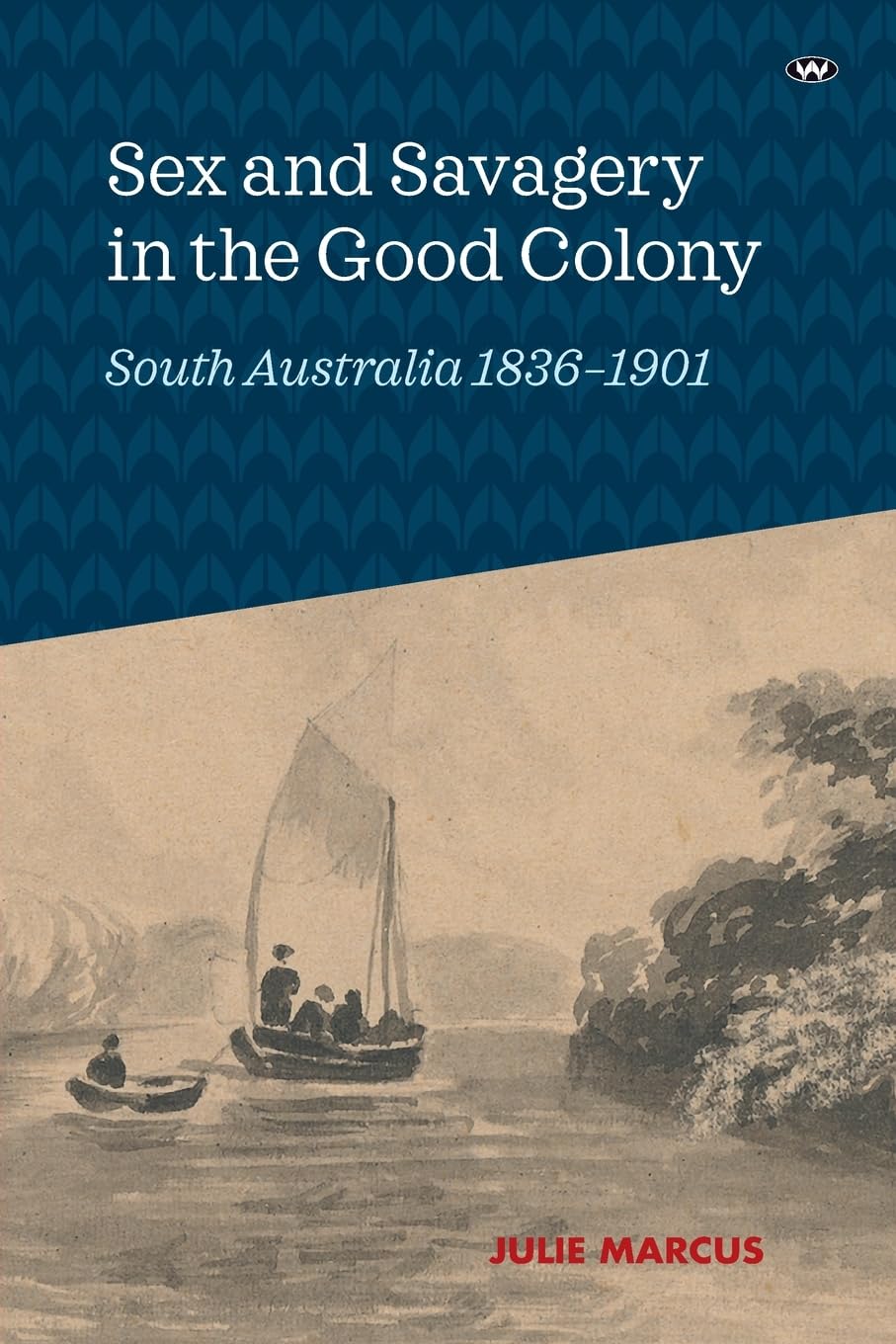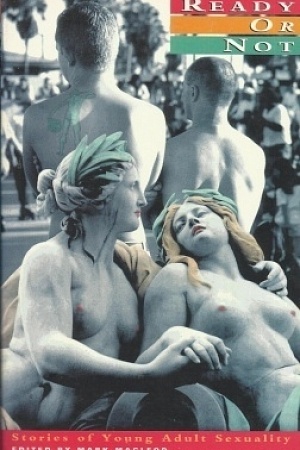Boss of the Pool
Omnibus Books, 68 pp, $10.95 hb
Boss of the Pool by Robin Klein & The Princess Who Hated It by Robin Klein
I think it’s time for Robin Klein to slow down, though my ten-year-old daughter Finley wouldn’t thank me for saying so. She almost shivered with excitement last year as she told me that her teacher was reading a chapter of Hating Alison Ashley to the class each day. ‘I just can’t wait for the next bit,’ she said, ‘but I don’t want it to end.’
So it’s the adult rather than the child in me who says that Klein’s new picture book, The Princess Who Hated It, is a mistake. With Althea as the princess and Peggy Plum as the pauper, it’s a version of the old changing places story, which only departs from convention in its implication that the change is permanent.
Although there is some pluralist gesturing in the acknowledgment that some girls may actually like to wear pretty dresses and sit at needlework or eat snow pudding, the emphasis of both the written text and the illustrations is on an early feminist rejection of all that. Girls would clearly rather be swimming across the moat in their underwear, with the frogs.
So one aspect of my disappointment with The Princess Who Hated It is that it seems to have come at least ten years too late. Of course, to a child who wasn’t even alive at the time, let alone who knows nothing of the development of feminist thought, such a complaint is completely irrelevant, and the book will still work for her. But I think it may help to explain why there is less of Klein’s exuberance in this book than in others.
Another reason is that Klein draws so much inspiration from her observation of Australian society, and here in the vaguely French world of silk thread escape ladders and glass coaches, she is simply not on home ground. There’s some unconscious Australian mischief in the unfortunate title already commented on by one reviewer (‘It’ is being-a-princess); and the bored princess prising loose the pearls from her bracelet so she can play marbles with them belongs to a working class Australian Dream. But such moments are rare: there are too few particulars here for Klein to get her satirical teeth into.
Compare this with a single sentence from the second paragraph of her new novel, Boss of the Pool. Shelley doesn’t want to go out with her mother. She says indignantly, ‘Petra Van Rees stays home by herself two whole nights a week when her mum goes to aerobics.’ In just a few words we have the middle class of Australian society in the 1980s: the pretensions of its naming (with a nod at the suburbia of Barry Humphries and David Williamson), its multicultural composition, its single parent families and latchkey children, its cult of narcissism.
For readers who enjoy the outrageous comedy of Klein’s best-known books, Penny Pollard’s Diary and Hating Alison Ashley, Boss of the Pool may be too sombre; but for some readers there will be strong appeal in this sensitive story of a girl who overcomes her fear of a disabled boy and teaches him to swim.
Like Patricia Wrightson’s I Own the Racecourse (the title Boss of the Pool invites interesting comparisons) and Eleanor Spence’s The October Child, Klein’s novel is less about the outsider himself than about the effect he has on the rest of the group who are without his disability. Indeed, by setting the novel in a hostel for handicapped children, Klein reverses the usual role of outsider, since Shelley the ‘normal’ child appears in a sense handicapped by her inability to cope.
Primary school children usually like to read about characters one or two years older than they themselves are, but because we’re not told exactly how old Ben and Shelley are, and because the profusion of unremarkable illustrations suggests a reluctant reader or a reader much younger than I think is intended, it’s difficult to say how old the likely reader of Boss of the Pool might be. I would think anyone from a good nine year old on.
I’m slightly disturbed, therefore, by the assumption made in Boss of the Pool that a child of this age would regard the disabled child as a ‘thing’. Shelley sees the paraplegic Tania ‘disfigured by a huge dark birthmark, and there was her mother, calmly helping that person, that thing, to cordial and biscuits!’ I suspect that Shelley’s horror is an older, or adult, response imposed on the child here. It’s a small point, but it’s an aspect of Klein’s writing that I stumble on now and then.
Ten year olds do not, in my experience, hate old people. And I remember with pleasure Margaret Mead’s quip that grandparents and children are potentially very close because they have a common enemy. So I worry when the clear expectation of Penny Pollard’s Diary is of an antagonism of the young towards the old. (Simone’s wimpish enthusiasm for senior citizens hardly counters Penny’s vitriol.)
Although in Boss of the Pool as elsewhere Klein confirms this suspicion with the occasional authorial analysis imposed on the child’s actions or thoughts – ‘She should be able to see that I’m too annoyed to chat, too annoyed to do anything except huddle in the middle of my rage, she thought’ – (where are the editors?) it is clear by the end of the book that Shelley’s hatred of disabled children is a defence against her fear of them, and a jealous response to her mother’s caring for them. So to some extent the objection is met and as a whole Boss of the Pool comes off as a book for its younger as well as its older readers.
The hottest Australian writer for children in the 1980s reminds me of no one as much as our hottest writer for adults, Elizabeth Jolley.
Now a full-time writer, Robin Klein has worked at various jobs: tea lady, telephonist (she got the sack for cutting people off at the switchboard), bookshop assistant (got into trouble for reading the books instead of selling them), library assistant, nurse, potter and copper enameller, and photography teacher.
Sound familiar? Compare this publisher’s blurb with the biodata on any Elizabeth Jolley book. Both are being marketed as ‘good blokes’.
Both are writers with a great sense of humour, formally playful, perhaps too prolific, and therefore missing out on prizes; both, though not hard-line, are feminists; both celebrate the marginal and the underdog who rebels against convention, with a refusal to take him or her too seriously and a tussle between sentimentality and irony that is characteristic of Australian writers since Lawson. Despite Jolley’s upbringing in the Midlands and Klein’s occasional choice of un-Australian subject matter, the concerns of both writers can be folded back into several persistent Australian myths. So they are clearly writers of their place. Their sales tell us that they are writers of their time.
The books are reading us again …











Leave a comment
If you are an ABR subscriber, you will need to sign in to post a comment.
If you have forgotten your sign in details, or if you receive an error message when trying to submit your comment, please email your comment (and the name of the article to which it relates) to ABR Comments. We will review your comment and, subject to approval, we will post it under your name.
Please note that all comments must be approved by ABR and comply with our Terms & Conditions.